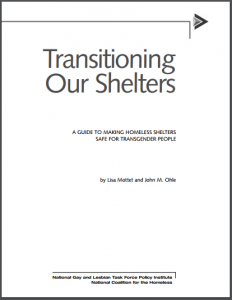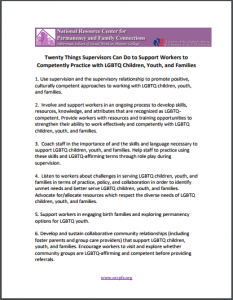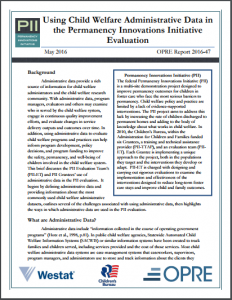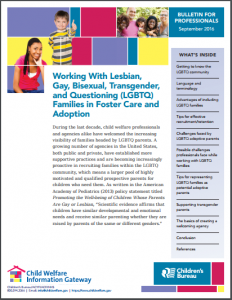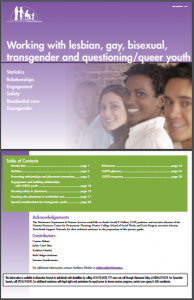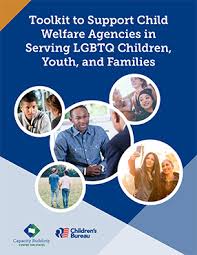 Provides links to knowledge- and skill-building resources; including articles, videos, tools, training curricula, tip sheets, information briefs, websites, and other products, to help state and territorial child welfare agencies meet the needs of LGBTQ children, youth, and families.
Provides links to knowledge- and skill-building resources; including articles, videos, tools, training curricula, tip sheets, information briefs, websites, and other products, to help state and territorial child welfare agencies meet the needs of LGBTQ children, youth, and families.
Children’s Bureau, Child Welfare Information Gateway



